
I turn 25 today and I wanted to celebrate the 25 series that I feel have help shaped me.
It's not a secret I don't have strong feelings on most series. Most series I would probably give a 5/10 or a 6/10, perfectly fine and that's about it. Some series however make me feel something deeper. Some series evoke incredible feelings in me, some series make me think and analyze them for days, months, YEARS later. Some series make me do both, and some can even link the two, uplifting my spirit.
These are my 25 favorite series currently, along with explanation of what I love about them. The placements are not at all set in stone, and I often shift my perspective.
32 Series were considered for this list, including the 26 series I consider great (8/10), the 5 I consider legendary (9/10) and 1 which I consider transcendent (10/10). In this list I want to give a brief history of mine with the series and why I consider it so well made that someone like me, who rates about 90% of everything I ever see only about average (5-6/10) to be so above average. I imagine this list may invite judgement, but I hope in this list you will find some common ground with my tastes and a better understanding of my person. I truly do love every single series on this list.
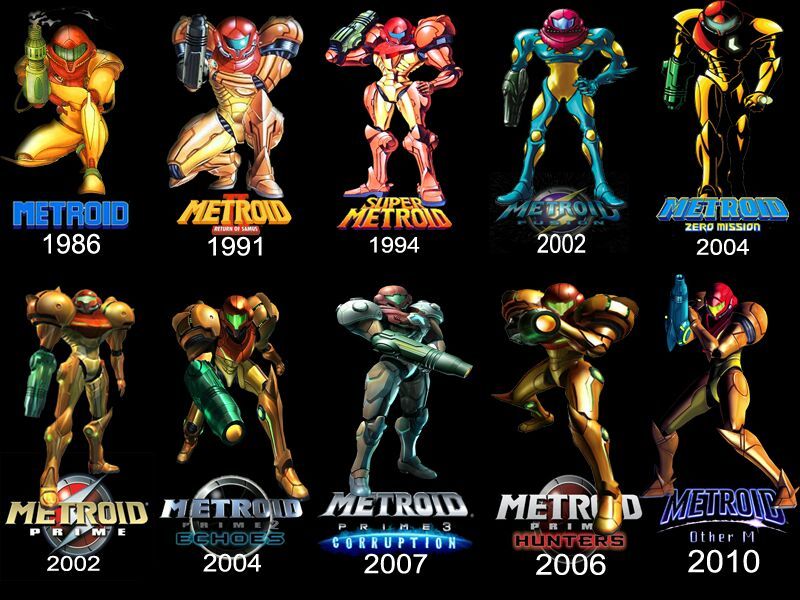
25: Metroid
My first boyfriend had a Nintendo and was into super smash. I was really interested in the attractive woman wearing the full body armor, wondering what her story was. I eventually looked up Samus to see where she was from, and to do to a goof on my first part, my first real exposure to Metroid was watching Super Metroid being played. Maybe it's due to nostalgia but Super Metroid remains my favorite of the Metroid titles (though in fairness to me, Super Metroid and Metroid Prime 1 are the Metroid games most often picked as best).
I absolutely loved Super Metroid which really got me into the Metroid series. While the story of Super Metroid was simple, it was very stirring. There's an interesting association I have noticed as years have gone by of female leads in science-fiction associated with motherhood and strength (think Ripley in Alien or Sarah Conner in Terminator). I think this is because motherhood is seen as one of the most existentially human experiences and thus contrasts most strongly against the in humanness of inhuman enemies. Super Metroid to me really captured the experience strongly. Metroid compared to it's contempories presented a more isolating and dehumanized environment. If you compare the enemies of Nintendo Heroes Mario Link or Kirby, Metroid's enemies are less human-looking in appearance and the environments are deliberately isolating and cold in their lack of friendly life. This brought the maternal themes of Super Metroid in a shaper contrast. Samus reflects this dichotomy being composed and stoic externally, and emotional internally.
I love the Metroid series for being filled with really interesting science-fiction concepts like the sentient planet phaaze source of the cosmic plague of phazon or the dual worlds of Light and Dark Aether, all handled with a surprising amount of detail and grounding, while still being able to contrast such strange and inhuman conditions with the humanity of Samus.
24: Yu Yu Hakusho
Yu Yu Hakusho has without question the best first episode of any show I've seen so far. And the first and last arcs of YYH are widely considered the weaker two arcs with the second and third arcs being considered the best arcs. YYH is a series I got into mostly just because I've heard so many people tell me it was good and so decided to check it out and it truly did have me from the first episode. The character archetypes and arcs of YYH are not unique for the battle shonen genre, but nowhere are they expressed most cleanly and clearly yet realistically.
If you compare YYH to it's contemporaries it comes in shocking detail. Unlike Dragon Ball (with it's more over the top exaggerated-ness and larger then life nature based on it's inspirations like Journey to the West and Martial Arts Films) or Saint Seiya (molded after world mythologies, with it' sleekness in design and mythological hyper-grandiosity and dignity), YYH is notably more "realistic" and down to Earth. The characters speak and act more more naturally, and go through more common real events, making the otherworldly elements inspired by the occult, religious conceptions of the underworld, and horror movies (as well as the work of H.R. Giger) come to life as all the more inhuman and darkly mystical.
Even outside brilliantly choreographed fights, both tactically and in the anime in the animation, Yu Yu Hakusho is full of vibrant dynamic energy, that most comes through in my view during the heroes conflicts with the major villains, especially if you know how their philosophies and goals relate to the stress of the author making the work, and if you relate to those struggles.

23: The Powerpuff Girls
So, as most people know about me if they know me much at all, I am a huge fan of the magical girl genre. During the mid to late 00s I was basically trying anything at all magical girl themed. This included a series called Demashita! Powerpuff Girls Z and thought it was a fine magical girl series. I was vaguely aware that it was based off a western animated series so I decided to try that. At the time my english was not as good, and so I started with the episodes that had been subbed (mostly the first couple of seasons) and I really really enjoyed it.
I already had a burgeoning interest in the western "superhero" genre and was immediately intrigued at the idea of a distinctly girly superhero group. Of the main trio, I most liked Bubbles who I thought was relatable. The PPG's charm I find lies in how it can so easily switch from humor (very often humor about Basically Kryptonian Level entities would act as little girls) to heartwarming and back with easy due to the series tone. Also despite having an incompetent populace as is somewhat standard in comedic series, it's surprisingly humanistic at times. There's one episode where the three superheroines are captured by a collector who views them as the final piece of his collection and the normally bumbling mayor rallies the normally bumbling townsfolk to save them. And it works. The Narrator even says at the end the day was saved thanks to the city of townsville. I was shocked; though very happy I'm have a very romantic humanistic sentiment.
I also really like the familial themes of the series, the relations between the sisters as well as with their father. I like familial themes in general and it's very central given the premise. Combined with the other things mentioned above, and I feel like this series really helped my budding interesting in western superheroes by couching it in my thematic and imagery language.
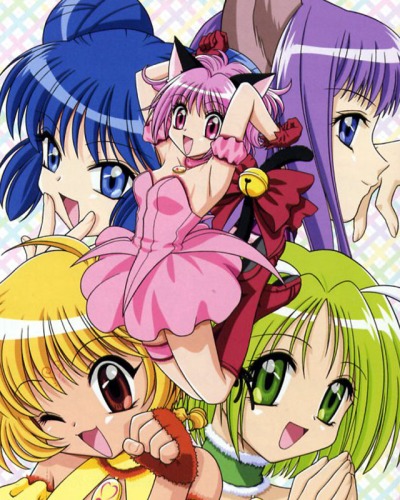

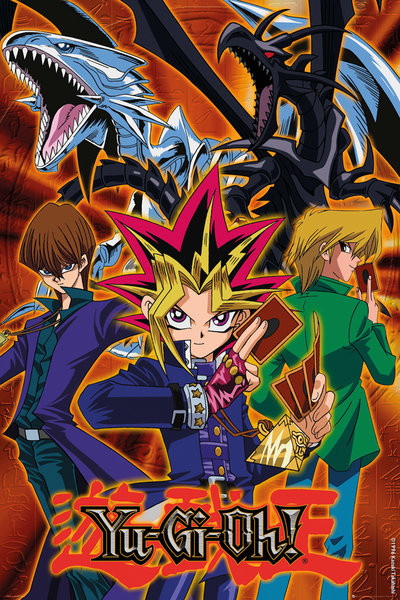



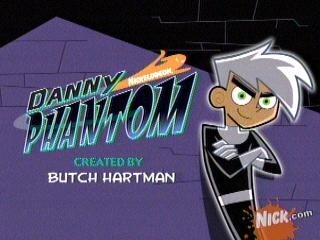
So, as most people know about me if they know me much at all, I am a huge fan of the magical girl genre. During the mid to late 00s I was basically trying anything at all magical girl themed. This included a series called Demashita! Powerpuff Girls Z and thought it was a fine magical girl series. I was vaguely aware that it was based off a western animated series so I decided to try that. At the time my english was not as good, and so I started with the episodes that had been subbed (mostly the first couple of seasons) and I really really enjoyed it.
I already had a burgeoning interest in the western "superhero" genre and was immediately intrigued at the idea of a distinctly girly superhero group. Of the main trio, I most liked Bubbles who I thought was relatable. The PPG's charm I find lies in how it can so easily switch from humor (very often humor about Basically Kryptonian Level entities would act as little girls) to heartwarming and back with easy due to the series tone. Also despite having an incompetent populace as is somewhat standard in comedic series, it's surprisingly humanistic at times. There's one episode where the three superheroines are captured by a collector who views them as the final piece of his collection and the normally bumbling mayor rallies the normally bumbling townsfolk to save them. And it works. The Narrator even says at the end the day was saved thanks to the city of townsville. I was shocked; though very happy I'm have a very romantic humanistic sentiment.
I also really like the familial themes of the series, the relations between the sisters as well as with their father. I like familial themes in general and it's very central given the premise. Combined with the other things mentioned above, and I feel like this series really helped my budding interesting in western superheroes by couching it in my thematic and imagery language.

22: Tokyo Mew Mew
Tokyo Mew Mew is a series that I have immense nostalgia, first seeing it as a young child. Like a young girls, I was pretty much instantly intrigued by the cute animals, relatable main girl, and colorful magical girls. Tokyo Mew Mew on it's surface is a really cute series with a fun cast and a fairly uncontroversial but important message about protecting it's environment.
What's so impressive about it then is how it stands out from the other series that can boast similar things. Tokyo Mew Mew has a surprising familiarity to it, partially due to the domestic and similar imagery used in the series. Watching Tokyo Mew Mew has a feeling of comfort and air of casual relatability to it, despite the supernatural antics of it, which is used for the most moving evocative scenes (consider the scene of Masaya waiting for Ichigo in the rain where the familiarity is conveyed by the closeness of their bodies).
Tokyo Mew Mew is just flatly enjoyable to watch from it's familiarity, a feat which is impressive by itself but not worthy enough of praise to rank as a great series, but it's skill at doing this while also having strong genuine emotional moments and even an interesting spiritual conflict at the end of the manga is why I consider it great.

21: Princess Tutu
Princess Tutu I view as the climax of the Silver Age of Magical Girls lasting from the late 90s to the early 00s. Of course during the 00s I was just trying everything magical girl, and this was a magical girl with ballet and fairy tail imagery so naturally I was super interesting in watching that.
Much like it's arguable spiritual successor Madoka, Princess Tutu is a series I only find that I appreciate more with time. Not only does it have the most sympathetic main character I've ever seen, but it also has easily one of the best magical girl villains ever. It also incorporates ballet and fairy tale themes amazingly, integrating them well without being so overt that it dominates the narrative (like Smile! Pretty Cure which, while I did enjoy, felt the fairy tale theme was REALLY overt but was not used to full potential).
Princess Tutu is of a unique genre I enjoy of a modern semi-deconstructionist semi-reconstructionist fairy tales that are clearly trying to capture the spirit of ancient fairy tales and explore them, similar to the works of say Neil Gaiman. It captures a paradoxical whimsy and tragedy in the stylization and anthromorphization of natural forces.

20: Yu-gi-oh!
I don't watch a lot of shonen, and certainly not a lot of sports shonen. But I'll always have a soft spot for Yu-gi-oh! It's hard to remember first seeing it, though if I recall correctly it was during my early years when my father was introducing my younger brother to tabletop games for a while, eventually leading us to getting some cards. I tried my hand at it, and was alright at it for the time, though I've never been a a really competitive player.
It's really hard to capture what made Yu-gi-oh! probably the most famous sports shonen to have been made on a global stage. However it does have something that I really appreciate nowadays. The series treats the card game as of super importance, and never jokingly derides it as just a card game. I really like in fictions when things are treated with gravity and importance they wouldn't get normally (But don't like the inverse). Beyond that on a more general state, Yu-gi-oh! has a heart but a lot of series do. Yu-gi-oh! I think partially got it's success just due to how incredibly memorable it's main characters. Yami Yugi, Jonouchi, Seto Kaiba, Pegasus, Malik, Bakura....all of them are incredibly memorable characters that command a lot of presence on screen. While most series have that one character that has an immense screen presence, Yu-gi-oh! has a half dozen characters that do.
Yu-gi-oh! also has an incredible sense of history and legacy that is omnipresent in the series, something that resonates with me. The characters are constantly making reference to ancient events and the wheel of destiny. This subtle but nigh-omnipresent sense of occult mysticism gives the series a unique air, imbuing "just a card game" with a real sense of importance and gravity. Yu-gi-oh! is a series that demands to be taken seriously, that grasps with ambition at making it's seemingly mundane topic to be the center of the world and that fills me with admiration.

19: Wander over Yonder
A while ago a western friend of mine, the same one who does my trailers and soundtracks for my fights, was introducing me to a number of western cartoons so that I could find ones that I like. Wander over Yonder, produced by the same creator as the PPG earlier, was one of the most successful.
Wander over Yonder Season 1 was a really good series; inventive, energetic and containing my favorite cartoon protagonist so far. Wander is an almost purely archetypal character as a force of alruism in the galaxy. Season 2 was actually even better, introducing my favorite cartoon antagonist so far; Lord Dominator being the perfect foil to Wander as a force of malice and devastation. Wander over Yonder at it's best captures a pure archetypal reality, and many of it's episodes (particularly in season 2) have a surprising amount of subtle beauty (My personal favorite episode is the penultimate episode The Flower)
Wander over Yonder is a series with a vibrant spirit of the conflict between altruism and malevolence and contains lots of cosmic imagery that really resonated with me. It's recurring theme of optimism and kindness are themes that I really agree with, and it has a primary protagonist and antagonist that are my favorite so far of the western cartoons.

18: Yuki Yuna is a Hero
In the early to mid 2010s, after the birth of the third magical girl goddess (Puella Magi Madoka Magica), as with all 3 of the goddesses a slew of series came out trying to emulate it. As a magical girl fan, I was eager to see all these new artistic magical girl series. Of the ones emulating Madoka, one was clearly the best to me, even able to rival Madoka, Yuki Yuna is a Hero.
Yuki Yuna is a Hero is a controversial series, though I personally found it very emotionally evocative. There is one moment that is especially so from the penultimate episode of the first season, which captures to me the beautiful truth of how our the little details of our mundane lives give us reason and meaning even when dealing with the horrible larger then life parts of being.
Beyond that, Yuki Yuna is a Hero has a really incredible presentation, and I'm not usually the kind of person that notices something like that, but the way Yuna's first henshin (unlike anything I've seen in an mg series) in episode 1, the comedy episode of the second season, the depiction of the spiritual reality of the end of the series...Yuki Yuna is a Hero is a very agreeable and familiar set of themes presented in a really cool way.


17: Panty and Stocking with Garterbelt
During the Dark Age of Magical Girls, Panty and Stocking coming out with a sudden break and in a bizarre way heralded the end of the Dark Age and the beginning of the Rainbow Age. When Panty and Stocking came out I had stopped watching every magical girl mostly due to the fatigue of it all but as soon as I started watching it, I marathoned the entire thing in one day. For me this is a pretty big achievement and has only happened with one other series.
I go back and forth on how good I think P&S is all the time, sometimes it's a lot higher on this list and sometimes a lot lower but this is about where I think it averages. Panty and Stocking above all is really not just entertaining to watch, but entertaining to talk about. It's manic energy that is well talked gives it a huge amount of presence, and a lot of the characters (especially Panty) practically demand the attention when on picture. In an age where most magical girl series were rather bland, Panty and Stocking reintroduced the vibrancy of possibility.
What I find interesting about this series however is that it's perfectly willing to undercut it being a dirty sex comedy to be completely serious for a scene or two, like the scene of Terao meeting Panty or The Bachelor ghost confessing to Stocking or a lot of the interactions between Panty and Briefs in the finale. P&S is a very very funny series (in my opinion), but it's a series that thrives on being unexpected or on being versatile and being able to do just about anything for an ep, including just not being a comedy for a second and being serious and dramatic.

16: Xiaolin Showdown
Xiaolin Showdown is another one of the series that I saw when being introduced to a bunch of cartoons at once and probably the one I had the least expectations of going in, having heard the least off.
Xiaolin Showdown has the achievement of probably being in my view the most consistent series I have ever seen. It very quickly reached a level of quality, and rarely deviated heavily in either direction; All the main characters were fun cool personalities, and the rest of the cast were either on the level or just slightly below but still entertaining in their own right. I don't think I once went into an episode doubting it's level of quality; it was consistently a funny and interesting series. I know some people say they think Season 3 was a decline in quality, though I personally must disagree. I especially roll my eyes at the idea that some of the wu being comedic (like ants in the pants or sweet baby among us) was somehow a sign of it's decline. Personally I just took that as Dashi's sense of humor.
I also really liked the series sense of legacy and history. Not only is ancient history constantly being referenced from Wuya and the Sheng Gong Wu, but ancient warriors and demons and events are often referenced as important events. The series had the same sense as mentioned in some of the previous entries of giving the seemingly flamboyance a sense of dignity with it's sense of scale and legacy.

15: Danny Phantom
Danny Phantom was another one of the cartoon series I saw when I was being introduced to a large amount of cartoons and is currently my favorite cartoon. It was a series I had heard was pretty good, but I was not expecting what I received.
I've mentioned my interest in western superheroes and I think DP is honestly one of the best examples I've seen, managing to blend tones and style of eras. The series casually mixed superheroics, science-fiction, occult mysticism as well as occasional crime genre and teenage soap opera. Danny Phantom also does one of the best jobs of any superhero series I've seen of having a non-metahuman cast that remains relevant in the world of metahumans. Likewise it has one of the best supervillain rosters I've seen with several stand out examples like Vlad, Spectra, Walker...
I know some people, much like the last entry, think season 3 went downhill and I get I really didn't get that impression. I guess there was 1 or 2 eps that weren't up to snuff, but like "Torrent of Terror" "Urban Jungle" and "Frightmare" all felt like mini movies and I really liked the eps "Infinite Realms" and "Girl's Nights Out".
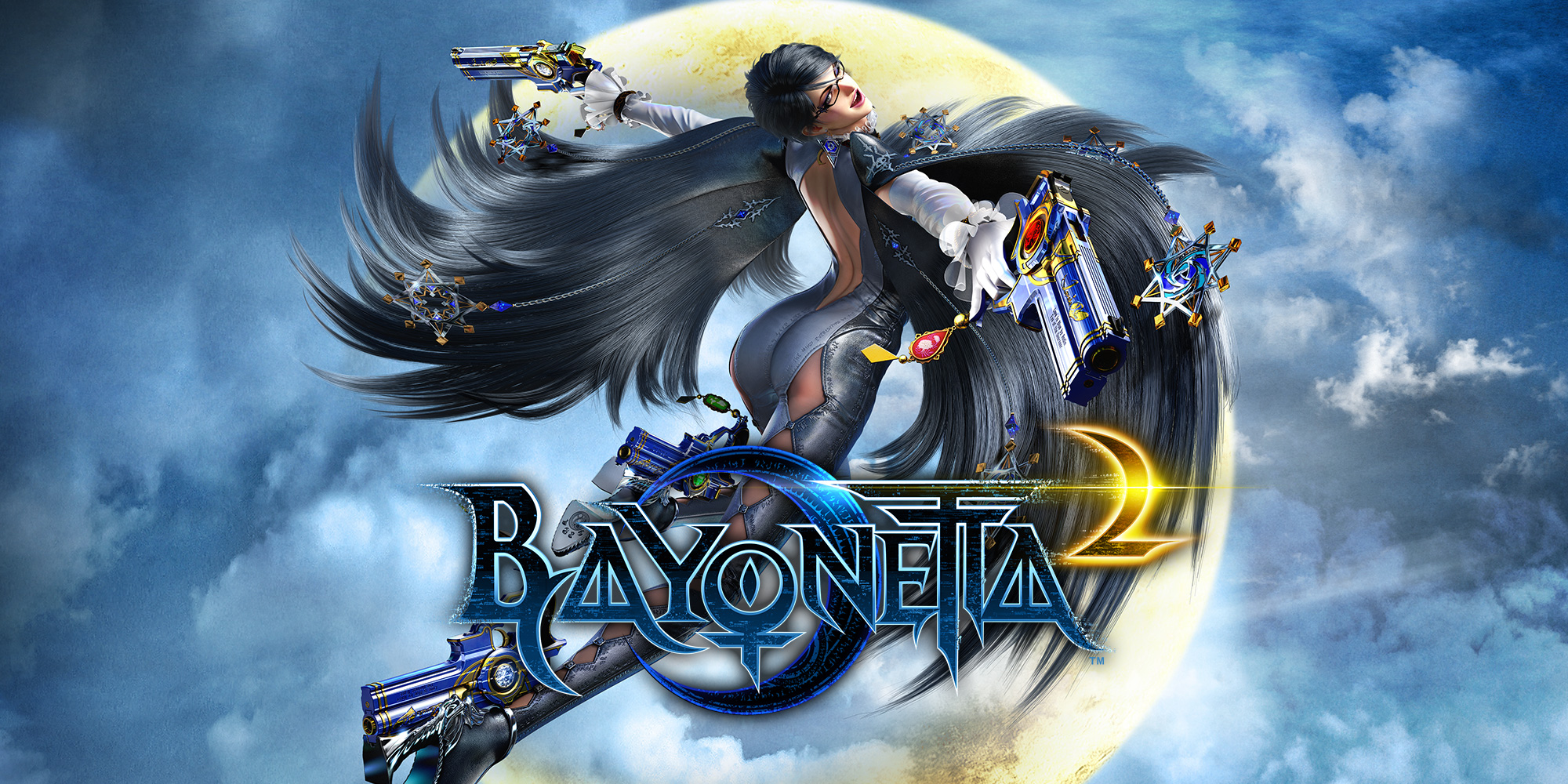





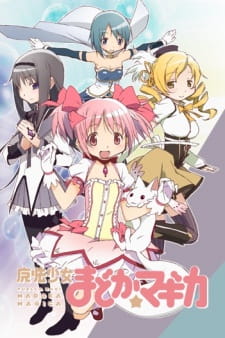
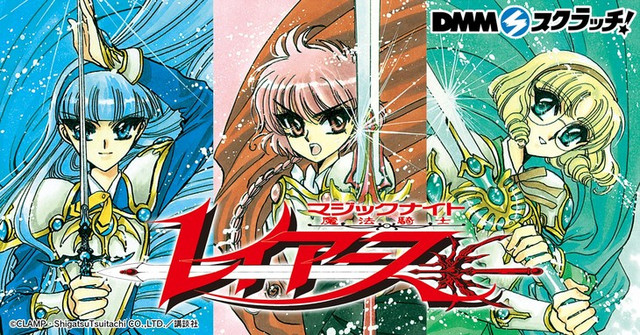

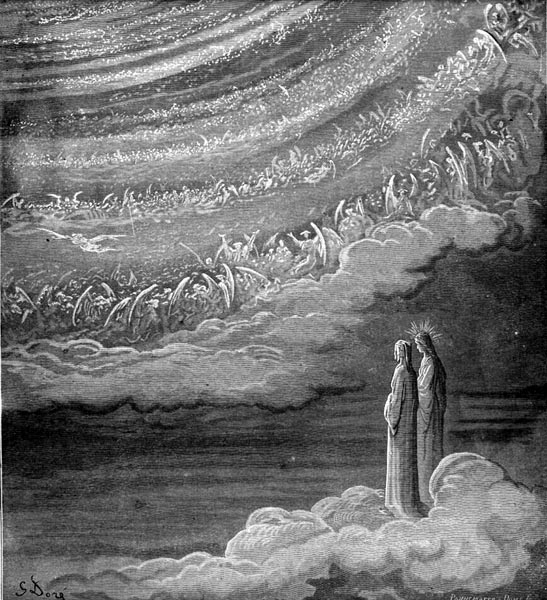

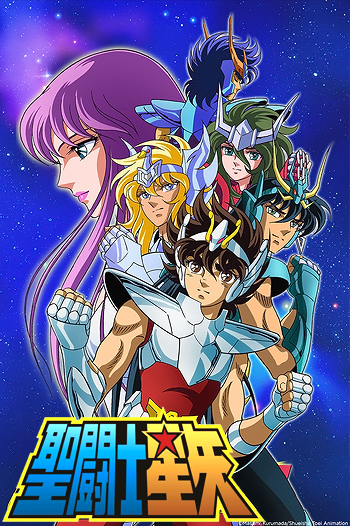
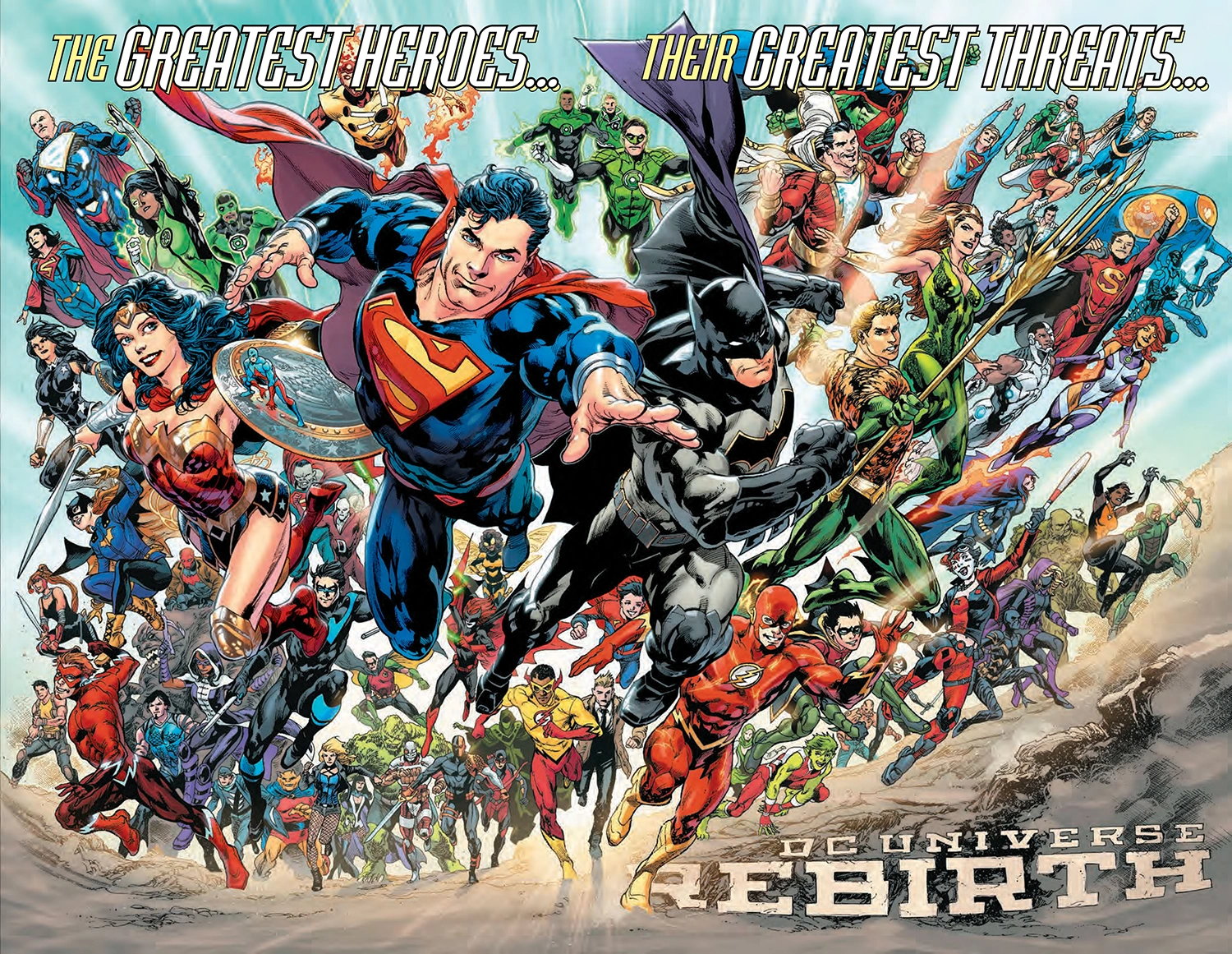

I wonder how many people would have realized that this was the same joke in the blog I made for my birthday a few years ago if I didn't mention it

I know some people, much like the last entry, think season 3 went downhill and I get I really didn't get that impression. I guess there was 1 or 2 eps that weren't up to snuff, but like "Torrent of Terror" "Urban Jungle" and "Frightmare" all felt like mini movies and I really liked the eps "Infinite Realms" and "Girl's Nights Out".

14: Bayonetta
Bayonetta was something I had heard glowing praise of (as well as a supposed "controversy" that to me made it seem even better IE Bayonetta being a sexualized female protagonist), and the more I heard about it the more it sounded like it was made for me. The main character sounded like a cool confident sexually liberated woman. The Magic system was occult and stylized in a way that really sounded just like what I had always envisioned magic fights to be. Parts of it were based on the Divine Comedy.
No surprise, I loved it. Bayonetta is almost exactly what I had imagined high level mage fights looking like, with magic circles and images flashing around and reality and spacetime warping everywhere. I love Bayonetta as a character. As someone who is rather anxious and shy, I find confident and sexually liberated female protagonists honestly rather admirable and inspiring, like Bayonetta, Starfire and Cutie Honey. There has often been an associated of magic with femininity and Bayonetta's magic is I think a really good representation of that association, as well as the association of both of them with sensuality and liberation.
Bayonetta's themes I also find really endearing; themes of the chaos of the human realm and it's importance, the importance of free will, and most rare the relation between our past and present selves. This is a theme I've always found very interesting, but it's very rare to see, mostly because it's hard to write about though the first game does an amazing job of it. The various references to the Divine Comedy (including styling the entire angelic and demonic hierarchies based on them) was also very appreciated.

13: God of War
When I was kid our family had a playstation 2, that my brother used mostly though I sometimes played a little with him. It was mostly more childish games though through the Sony fanbase I guess you would say I heard of this big game that starred a premier character of Sony, God of War and Kratos. Now I was a pre-teen at the time so I wasn't really interested. It was really only around God of War 3 coming out that I became interested, having seen that this franchise had become so big.
I am very interesting in the classical Grecian Culture, and it amazes me how much of it God of War reintroduces. Kratos is an amazingly example of an Aristolean Tragic Hero, starting in an exalted position and damned by his fatal flaw (typically pride, in Kratos' case wrath). The brutality and sexuality of the series is shocking faithful to the original which contains such things as Perseus slicing the head off Medusa and using it as a weapon or the adultery of Aphrodite (recreated and alluded in God of War 3). Truth be told I find nothing more insulting to a culture then trying to strip it of all you find disagreeable or wrong and trying to present it as only superficially different to yours. God of War does not do this, recreating the Ancient Greek Mythos in it's non-modernness. Most impressively was how it not only captured by expanded on the Ancient Greek Mythos telling of the primordial story of the generational violent overthrow of one generation by it's child generation. From Olympians to Titans to Primordials, it is the singular narrative of Greek Mythology presented in the Theogony.
I called a long time ago that God of War 4 would be all about Kratos trying to be a better father both based on GOW 3 Kratos's proclamation that "the cycle ends here", the trailers showing Kratos acting as father to Atreus, and so on and I am very happy to have been shown as correct. The God of War series I love not only for being probably the most faithful recreation of Greek Mythological Values, but for extending the closest thing the mythos has to a central narrative, to a tale of familial love overcoming the cycle of patrocide and eventually redeeming the fallen Tragic Aristolean Hero.

12: xxxHolic
After Cardcaptor Sakura and Magic Knight Rayearth I became very interested in Clamp and began eagerly trying out their many stories. Most I found well-written but not personally appealing, with the exception of xxxHolic.
No series makes me feel intelligent and cool to the extent xxxHolic does. xxxHolic has a mysterious occult air that pervades it, that makes you feel like you are peering through the void to the true reality. There's so much going on, and the amount you can actually pick up on makes you feel wise, yet the parts you didn't pick up become explained to me, making you feel like you progressed. Beyond that however the series can also be rather fun when it wants to, much like the character of Yuuko; mysterious, playful and seemingly all-knowing. xxxHolic is in that sense the inverse of P&S, where P&S is usually an exciting and fun experience that can become serious to make an effect, xxxHolic is usually a mysterious and intriguing world that can take short breaks for energetic fun for an effect whether it be one of Mokona's goofy statements or one of Watanuki's outbursts.
xxxHolic's greatest advantage in my view is just it's sleekness and wispy air of occult intrigue. Watching it is somewhat akin to watching the show of a magician, as every moment can reveal some new spectacle or some new break in the seeming mundane reality to grasp something unbelievable. All the characters have fun character dynamics on the surface, yet unlike some series, these dynamics are not merely mundane reality, but seem to always bear some relationship and specification of their underlying natures.

11: Cutey Honey
When I was young, Cutey Honey Flash aired on televison. It was a magical girl show so I was naturally immediately interested. It was also the version of Cutey Honey made for the unexpectedly large female fanbase of the show. At the time I thought it was just one of the coolest things ever.
Cutey Honey is to some extent a genre-bending series, but even moreso it's a tone-bending series. Even the original version was a combination of two things that seem like they would never go together; goofy 60s science-fiction and dark sexy 70s crime thrillers. I think they meshed together surprisingly amazingly. Honey herself is a character I really love and the precursor I think to a lot of other characters I love like Sailor Venus and Bayonetta. Cutey Honey is a surprisingly versatile concept, adapted into several different moods and time periods with no problem.
A lot of shojo has the heroine saying that she's the "warrior of love", but with Honey I really do get that impression. Despite being an artificial being, she experiences real love, which is her strongest power. She was created out of love, and she is maintained as person and not a crime-fighting killing machine by love. It's really heartwarming to me. Also a well maintained Cutey Honey sequence is just intoxicating to watch, full of spectacle and flamboyance.

10: Okami
Like a lot of games, this one I found mostly because we owned a game console at home and my brother bought it. Okami is a game that is immediatly visually engrossing due to it's highly stylized aesthetic designed to resemble classic sumi-e.
Beyond that Okami is a game that is immersed in Japanese culture and spirituality and it's a game that at times is relaxing, entertaining, frightening, cool, and emotionally evocative without ever seemingly like it is ever at odds with itself. It's a game steeped and filled with grandeur, gravitas and dignity. It gives even small mundane things a greatness in it's essence, connected to the divine essence of things.
For someone who is very spiritual, it was a very endearing experience to exist in such a spiritual world as Okami, and I also greatly appreciate it's themes of reverence and gratitude, and the importance of the interconnections of nature. The game has many levels which would be art pieces in themselves, let along the entirety. Also as someone interested in folklore and myths, Okami is the best representations of mythology in an interactive format I am aware off, representing the myths and knowledge of it in the game's story and levels. Okami is immersed in all the legends of Japan from the biggest tales of Shinto to tiny local legends. For someone interested in such things it is almost overwhelming in it's reverence and references to them.

9: Pretty Cure
Pretty Cure is a series you absolutely don't want to get behind on. At 16 seasons with about 50 episodes each, Pretty Cure is a behemoth of a series. My favorite season is Heartcatch Pretty Cure (Season 7), I also really like Go!Princess (Season 12) and the controversial DokiDoki Pretty Cure (Season 10). All of these by themselves I would consider for this list if they were seperate series.
Pretty Cure is like the perfect archetype of the magical girl anime. Almost all the great and bad things of the genre are evident in the series as a whole and as a magical girl fan, for me it is really is a wonderful thing. It's an incredible wholesome franchise that with standard shojo themes of friendship, love, dreams, hope, etc. yet is incredibly endearing in it's childish passion and idealism. Pretty Cure's greatest strength is the sheer strength of the emotions it presents and the wholesome fun of watching cute girls beating vile monsters with the power of friendship and their emotions with the sparkly magic beam.
Pretty Cure can do really good character work, and is very good at making a diverse group of endearing characters despite not giving any of them even the slightest hint of edge. It can have a greater emotional depth then people think as well, and has all the wonderful general themes that I love.
Notably, of the 8 series I like more then Pretty Cure, exactly half are Magical Girl Series.

8: Puella Magi Madoka Magica
2011 was a really big year in magical girl history. Coming off the tips of the much acclaimed Heartcatch Pretty Cure, it was announced that the famous Gen Urobuchi, who usually created dark works, was going to make a magical girl. Early designs made it look fairly typical and so only magical girl fans like myself was interested. The series would come to be something different then what was expected, drawing a huge amount of attention onto the series, inspiring a legion of new magical girl series, and starting a new age of magical girls. This was the birth of third magical goddess series.
Madoka is a series I find I appreciate only more with time. And even on my first watch I was super drawn into it, watching it all at once (I was unable to catch it when it was first broadcasting). I have a personal conjecture that part of the reason Madoka was popular was that it was a magical girl anime written like a magical girl manga; somewhat darker, more plot-focused and lacking filler, more philosophical, more focused on older audience. While Pretty Cure is the archetype of the magical girl anime, Madoka even though it is an anime is the archetype of the magical girl manga, and as someone who enjoys magical girl manga even MORE then magical girl anime it was natural that I would love it. I love it's themes of selfish vs selfless love, it's themes of wishes and gratefulness...
I also really love the controversial Rebellion Movie. I must just the line from the incubators about observation leads to manipulation leads to controlling sends chills down my spine from it's elegance. Madoka is like Magical Girl Manga in that it has an absolutely incredible elegance, refined and focused thematically and philosophically, overt in express yet subtle in it's depth.

7: Magic Knight Rayearth
Magic Knight Rayearth is a series I have much nostalgia for, because I have enjoyed it since a very young age. I believe I first saw it advertised in Nakayoshi Magazine. Magic Knight Rayearth is a gem I feel has unfairly lost to time, despite being an absolutely amazing magical girl series.
Magic Knight Rayearth is at it's heart a classic adventure story; 3 schoolgirls called into another world to be heroes of this other world. Yet to me it will remain the iconic adventure story, entailing everything one want in such a story. The series blends tropes and new ideas seemlessly, and can feel at home using old tricks or subversions. MKR feels at once both like a personal dramedy of the three girls interactions and a fantasy epic about the plight of the world of Cephiro.
However that alone would certainly not get it this high. The thing about MKR is that it starts out good, but only gets better with every chapter in the manga, and for a lot of the time, gets better anime-wise over time as well. By the final chapter MKR has gone from a simple fun adventure for young girls to an interesting philosophical, political, and psychological thesis, not in spite of it's heart but because of it's heart. I am ruled by two desires; to feel emotionally resounded and resounding (emotional appeal) and to be intellectually intrigued (intellectually appealed). The Finale of MKR is one of the very few times instead of just one appeal, instead of even both appeals being present separately, the two appeals are interwoven like symbolic narrative poetry

6: Magicka
I was a fan of the late game reviewer Totalbiscuit, and I can honestly say I have never enjoyed a playthrough as much as his playthrough of Magicka with Lewis and Simon of the Yogscast. If you ever want to understand my style of humor, I would say this is one of the closest things to my sense of humor. This inspired me to get the game.
Magicka as a game is a bit out of an outlier upon my interests. There are other games on this list, but if you look you'll notice I am usually praising their stories or maybe aesthetics. Truth be told, I don't usually get much from a game mechanics, but Magicka is the general exception. I love playing Magicka, and in a way I feel it's gameplay is amazingly interwoven with it's world. Magicka is set in a world of primal elements, a world where the wizards represent the primal forces of nature. As such to best play the game is not about planning far into the future, it is about quite the opposite; staying in the moment and intuiting what to do. There's an almost meditative quality about playing Magicka, a return to unconcious I've experienced with nothing else. Magicka is a game best played it seems to me with intuition and creativity.
Beyond that I really like the world of Magicka. Vlad and Grimnir I think are amazing characters, I like Lok, the Wizards in general, Assatur....I like the themes and worldbuilding of Magicka, goofy though it may seem. The best comparison I can give is it's like playing a game in the monty python universe. And as that comparison implies, it's really funny, especially with the magic shenanigans that can occur. And for it's comedic trapping, the actual magic system of Magicka is one of the most logical and internally self-consistent I have seen, and I am impressed that it can have this quality while retaining the fact that everything about it can be intuited from the elemental combination. The fact that such a small game studio could make something this awesome inspires me.

5: The Divine Comedy
I actually really like reading (hence why I prefer manga to anime) but there are not many novels on this list mostly because most of the novels I really liked were A: A singular novel rather then a series and/or B: Non-Fiction meaning they don't really fit on a list of "fictional series". However my favorite literature is the Divine Comedy which happens to fit both criteria. I was mostly introduced to the Divine Comedy in college by one of my professors who was VERY into the Divine Comedy and the enthusiasm was rather contagious.
Note: If we're talking about what series is just the "best written" then obviously it's going to be this one. The Divine Comedy is well regarded as at least one of the greatest works of fiction of all time, and of major historical importance. While it's not my personal favorite due to a bit of a lack of personal connection, it is absolutely amazing with plenty of beautiful poetry, an amazing narrative, themes of love and humanity (my favorite themes) etc.
It's difficult to overstate how incredible the Divine Comedy is as a work, combining all the sciences and fields of study of Dante's day, uniting the Greco-Roman and Judeo-Christian worldviews in the first proto-humanist heralding of the renaissance centered on the importance and nobility of common man. It's an incredibly inspiring work to read and is in my opinion the "most perfect" (IE least flawed) work of fiction that has ever been created. It's inspiring to think about and bolsters the heart with love of humanity.
4: Cardcaptor Sakura
I first saw the second of the magical girl goddess a long time ago, to the point that I can very barely recall it, probably before I even saw things like SM. I've liked CCS since I first saw it though only grew to love it more and more as time went on and I realized how much better it is then I was first able to appreciate.
Cardcaptor Sakura is almost as pure and wholesome as you can get, and it's a good testament to how that does not at all curtail one's ability to say important things. CCS is at many times cute, it is funny, it's often intellectually stimulating to a degree (as much of the challenge of the main character is how to capture a Clow Spirit using the cards she has provided like a little puzzle) and it can be philosophical. More the anything it's an optimistic series, Sakura's catchphase being "Everything will be alright". This sounds childish but there is wisdom to this childishness, as the value of optimism is dismissed with age and then regained with greater age.
Cardcaptor Sakura is a series that teaches us to value the seemingly mundane, it's a series that highlights the magic in the mundane without it ever feeling like it's exaggerating it's importance. Sakura's greatest strength is her hope and optimism. Sakura's friend Tomoyo is stated by Eriol to have the ability of intuition which is both said and shown to be as strong as a magic. The cards are usually captured by an understanding of the mundane world, such as when The Dash, fastest of all the cards, was captured merely by understanding that it wast just running away because it was scared and instead allowing it to come to her. I have a romantic heart and truth be told I see lots of magic in this mundane world we live in, and CCS is a celebration of that kind of magic.

3: Saint Seiya
I recall watching Saint Seiya with my younger brother after school. It was immediately distinct from the other shonen due it's elegant mythological-inspired aesthetic, it's cast of bishonen, and it's dramatic, almost theatrical emotionality.
Saint Seiya has a very strong sense of legacy coursing through the series that synergies well with the strong sense of mythology that obviously inspires the series. The Saints are constantly said to have served Athena since time immemorial, and my favorite arc of the original series is the Hades Arc partially because of the times that it shows the love between the Gold Saints, the older generation and the Bronze Saints, symbolically their younger brethren. Everything in SS has such a sense of history and legacy and mythology gravitas. If GOW is the best representation of the Greek Mythical Values, and Okami is the best representation of the Japanese Mythical Spirituality, Saint Seiya contains the spirit girding mythology itself.
Saint Seiya is a series that captures the religious and mythological sentiments of grandeur and gravitas transcending humanity and spacetime, the concepts emanating as gods in the human realm. It is at once both theatrical and dramatic yet subtle and understated in a realistic sense, combining them by virtue of relating such inhumanly concepts to our human passions and concepts. The Human and Divine World do mirror each other and within each person is a universe, a cosmo. The sense of inter-connectedness of being, really is beautiful to me. Saint Seiya: The Lost Canvas by itself would be a candidate for this ranking and I also greatly like the original series and Saintia Sho.

2: DC Comics
Long ago, I came across a set of old shorts featuring the character of Superman. I thought it was different, not like what I had seen before, but not amazing. That said it fostered an interest in the western superhero. I began to enjoy superhero related series like the powerpuff girls and freedom force. However it really clicked on me when I was watching Linkara who said a statement that really made me get it. He said "Superheroes are OUR Mythology." As someone interested in mythology, I suddenly had an epiphany of the nature of Superheroes as Demigods. I am very interested in DC Comics, with Superheroes being representations of virtues and cosmic forces like Roman and Greek Gods.
The parts of DC I am personally most interested in are the Kryptonian Stuff, the Amazons and Related Entities (Wonder Woman, Donna Troy, Starfire is a Honorary Amazon), The Magicians (Doctor Fate, Zatanna, etc.) and the Cosmic Entities (Sandman and Lucifer series especially). All-Star Superman, Whatever Happened to the Man of Tomorrow, the DCEU, The Sandman, The Crisis Trilogy would all be considered candidates as individual series for this ranking. This is because the DC Universe's biggest strength and weakness is it's sheer size. But overall, it has a lot of things that have truly inspired me.
The DC Universe as the modern mythology is inspiring to me in it's sheer humanism. DC constantly emphasizes how great the normal person, and if Superman is truly their flagship character then the heart of Superman is to me the idea that Superman is not the powers, anyone can be the Superman if they have the conviction to do the right thing. The DC Universe is the modern mythology, it is the telling of demigods and monsters, and the grappling of society and the collective conscious with abstract concepts and the unknown world. And in it's humanism and extolling of the virtue of the common man, there is reflected the faith in our fellow human.
Well.......you were all expecting it..... obviously my number 1 choice is

1: Naria Girls
IT'S NARIA GIRLS BABYYYYYYYYYYYYYYYYYYYYYYYYYYY
PLAY US OUT (5:57)
....
look everyone already know what the number 1 was

1: Sailor Moon
A young girl was watching tv when she came upon a new show. In the show a bunch of female senshi saw into the distant past. In the distant past there was an idyllic kingdom on the moon, in that time there was a princess of the moon and a prince of the earth who had a forbidden love. The prince held the princess close vowing that even if it meant his death, he would fight for her, pulling her into an embrace, the event tragically ending with their deaths before they were reincarnated upon the Earth. The Princess modern day's reincarnation tearfully prepared to fight to be reunited with her love. This episode captures my heart, and even today strikes a powerful nostalgia into my heart.
I rate Sailor Moon at a 10/10, the only thing at that score, because I truly have never seen a series that compares to in my enjoyment. The Manga is my favorite version yet, every single version of Sailor Moon that has a story would be considered for this ranking if they were independent series, as would every single manga arc by itself. Sailor Moon is a verse that relates all the themes I love and which I have spoken of previously; the relation of the divine and the human, the stellar/cosmic, the feminine magic, the relation between the magical and the mundane, the sense of legacy, mythology and history, the importance of humanity, the interconnectedness of being and so on.
Sailor Moon is uniquely personal to me. It's themes and ideas are so resonant with me that I can honestly say for nearly 2 decades I have thought of SM at least once a day at least passingly. It's a franchise that the more I think about, the more I see and understand all within an efficient and short framework. Beyond this, Sailor Moon has a unique quality that it makes every other work feel better, as if glimpsing such a beautiful reality, I then see the hidden beauty in every other part of the world. After experiencing SM or thinking about SM or discussing SM, everything after it feels markedly better, to the point that most other series gain a solid point out of 10 in quality. SM is my favorite work, because it fills everything else with more splendor and dignity and beauty. SM is a work ultimately about the fundamental unity of being, and so too do I experience it in all else.
So why do I like what I like? I hope from this you not only have found some interests we share, but perhaps picked up some recurring themes that are important to me; Love, Hope, Family, Mythology, History, Legacy, Humanity, Identity, Free Will/Destiny, Magic, Occult/Spirituality, Dignity/Grandeur, Magical/Mundane Dichotomy.
All of this is founded on the basis of the underlying unity of being. All that we experience, I intuitively feel an underlying order, an underlying unity giving to each event meaning and purpose, giving to each moment dignity and importance.
All my life I have experienced this fundamental dichotomy of the realm of the human, trenched in mundane material details, and the realm of the spirits, of the deities, of the concepts, existing in archetypal infinity under it's surface. Art focused solely on the realm of the human I do not like. It is meaningless and nihilistic, an empty drama about arbitrary events. Art focused solely on the realm of the higher planes, I do not like. Such abstract art I can not relate too, disconnected as it is from our human experience.
The art that I like is the art of our ancestors; shamans, mystics and priests who channel the higher planes into our material surroundings, paradoxically capturing the infinite in the finite! Such is the definition of magic! All themes I have said in some sense are the capturing of the abstract and more fundamental existence in this transient material existence we know. To capture the golden light of the Forms, the more fundamental truths of the unseen world (the realm of the spirits, the gods, the concepts) in material words, sounds, ink or code... Such is the work of the master storyteller, in my view.
Happy Birthday Imp! And what a great blog to put out on it! i have seen a good half of these series myself and of those there isnt a single one i dont really like. I really loved reading your descriptions of all of these there was a great deal of passion put into every single one. Yes i really loved you giving reviews of a bunch of series that I showed you or would make my own top 25 if i were to make one. But more so I really love the descriptions of the ones I have not seen cause DAMN do these make them sound really good. I especially like ones like Princess Tutu Divine Comedy and ESPECIALLY Yu Yu Hakusho cause wow. It makes me happy knowing you have so many awesome series like this and I am excited to explore some more of them, both in your future blogs and in actually checking them out!
ReplyDeleteHappy Birthday! 25, eh? That's a big milestone, congrats on reaching it! You're now over Fool's Hill as they say, though some of us (like me) are still climbing it years after hitting 25 :P But as this blog shows, you're clearly no fool! This ranking blog demonstrates a very good knowledge of self and an effective communication of that knowledge to others. We've been good friends for years now and after reading this blog, it feels like we're even closer. So take a bow, you accomplished your stated goal of reaching an understanding with your readers on what you like, why you like it, who you are as a person and how what you like has shaped the person you've become. Clearly with age comes wisdom, this blog is proof of that. But don't go thinking you're old yet! Because that would mean I'm practically bones and dust and we can't have that!
ReplyDeleteA lot of great stuff on this list and while I've only experienced a bit over half of them personally, it's clear that we like a lot of the same things. The reasons why we like them may be different in some ways but there's still a lot of points you made about each of the series on this list that I enjoy that are points that I agree with strongly. Special shoutouts to Saint Seiya, Magic Knight Rayearth, Yuki Yuna and that excellent number one pick, Naria Girls. Oh, and Sailor Moon too, that one was pretty good and deserved an honorable mention at the end :P Seriously, I wonder how many other people besides you and me have seen Naria Girls? To any curious person reading this, you're not missing anything that I would consider beneficial to your mental health. And more seriously, Sailor Moon is a completely fantastic series and it is so cool how deep your connection runs with it. I love love (that's not a typo) and seeing people get passionate about their favorite things is one of the things that brings the biggest of smiles to my face. Idk if that sounds weird or creepy but even if it's not something I enjoy, I like seeing people enjoy things and hearing the specifics of *why* they enjoy it so much is always a treat. And if that's a treat for me, then this blog was a feast. Thanks for the blog, may you enjoy a wonderful birthday Imp!
Happy Birthday Imp! I really enjoyed reading this blog. I think its a lot of fun hearing people talk about series that they love and this is no exception. You did a really good job of articulating what you love about all these series. It is really interesting to hear such high praise for some of these series that I also experienced (mostly things that are popular in the west such as Powerpuff Girls, Metroid, etc.); it gives me more of a respect for what those series accomplished than I really thought about before.
ReplyDeleteI do love many of the series on this list including Powerpuff Girls, Yugioh, Madoka Magica, Danny Phantom, DC comics. And you have made interested in experiencing Sailor Moon, xxxHolic, Magicka, Okami among others.
I think I can relate to your sentiment about series that combine the human with the divine/spiritual. "Empty drama about arbitrary events" seems like the reason that I sometimes don't like series that are more grounded stories.
Happy Belated Birthday, it's nice to see why you like so many verses, and I haven't been commenting for a while due to some personal things, nothing that need bother you though, but it's just good to see you are still going strong, and I hope you had a great birthday.
ReplyDelete